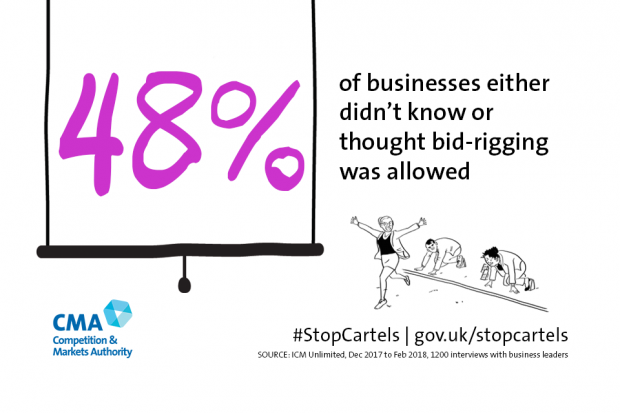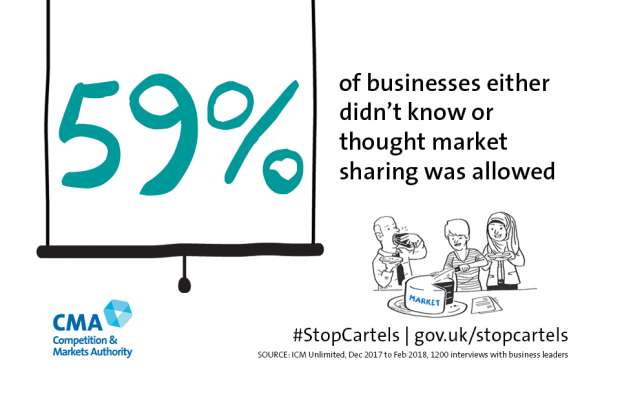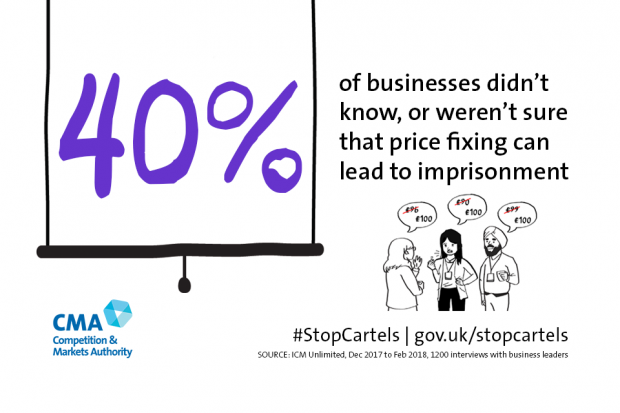Speaking to people from rival businesses in your industry may seem like a normal, everyday thing to do. And for most it’s a perfectly innocent and necessary part of business life. But, if you find yourself talking shop with a direct competitor, are you sure you know what is and is not safe to discuss?
You are not alone if you’re not sure. According to the Competition and Market Authority's (CMA) latest research with UK businesses, understanding of competition law is still low, with the majority (77%) of businesses still not understanding competition law well and very few (18%) running any competition law training. This lack of knowledge, combined with the growing number of businesses that regularly meet with rivals in social situations (79%), means that understanding the law is even more important if you do not want to fall foul of it.
What is a cartel?
Business cartels occur when competitors get together and agree not to compete against each other – for example:
- by fixing prices
- dividing and sharing markets between them
- rigging bids for contracts so they decide who wins
Cartels rip customers off and ultimately deprive them of a fair deal. They also make it extremely difficult for other competing businesses that are not part of the cartel to survive and grow.
When it comes to UK businesses’ understanding of cartel behaviours – our research reveals some dangerous misunderstandings:
- 41% don’t know attending a meeting where rivals agree prices is illegal
- over half (59%) do not know that agreeing to split up and share customers with competitors is illegal
- just under half (48%) do not know that bid-rigging – where competing bidders secretly agree who will win a contract and submit fake bids – is illegal
These misconceptions should ring alarm bells because the consequences of breaking the law are serious, damaging businesses as well as an individual’s personal career.
Consequences for breaking competition law
There are consequences for breaking competition law, such as:
- businesses can be fined up to 10% of their annual worldwide turnover
- individuals can face personal fines
- directors can be disqualified from acting as directors
- prison
It’s not worth the gamble and all businesses, small or large, are equally at risk and face the same consequences. At the CMA we believe that the majority of firms want to do the right thing. Most of those surveyed understand the value of fair competition, believing competition law helps to provide a level playing field for businesses, with the majority believing competing fairly is the right thing to do.
To help businesses better understand the law, the CMA is running a new campaign to raise awareness of cartels, how to spot them and how to report them to us.
What should you do if you spot a business cartel?
Simple answer. Tell us.
If you think you may have been involved in a cartel then it’s better to be safe, not sorry, and report it to us first, as you may benefit from immunity from fines and prosecution if you report before others do.
If you think you have witnessed others breaking the law, do what's right and report it to us in confidence. You may benefit from a financial reward.
For more information, visit the government's page on stopping cartels, where you’ll find:
- short videos that explain what cartels are and how to report them
- case studies of other businesses who broke the law
- an online quiz, to test how much you know about competition law and cartels
- a cartel checker, so you can understand what information relates to a cartel and whether you should report it
To keep in touch, sign up to email updates from this blog, or follow us on Twitter.



